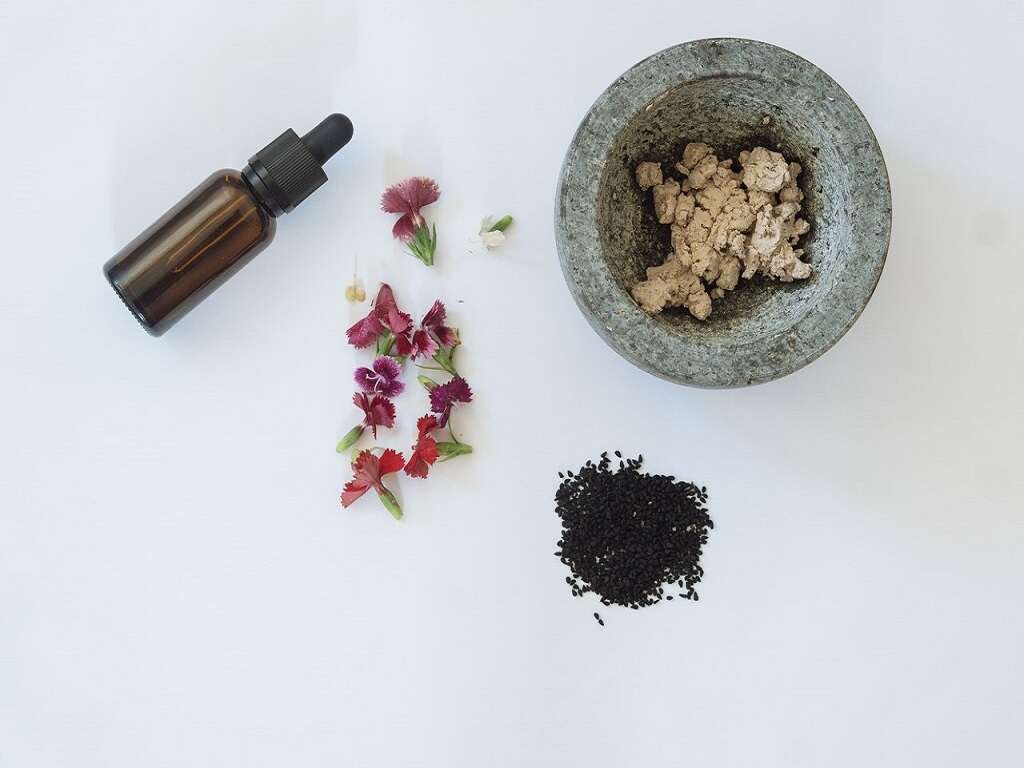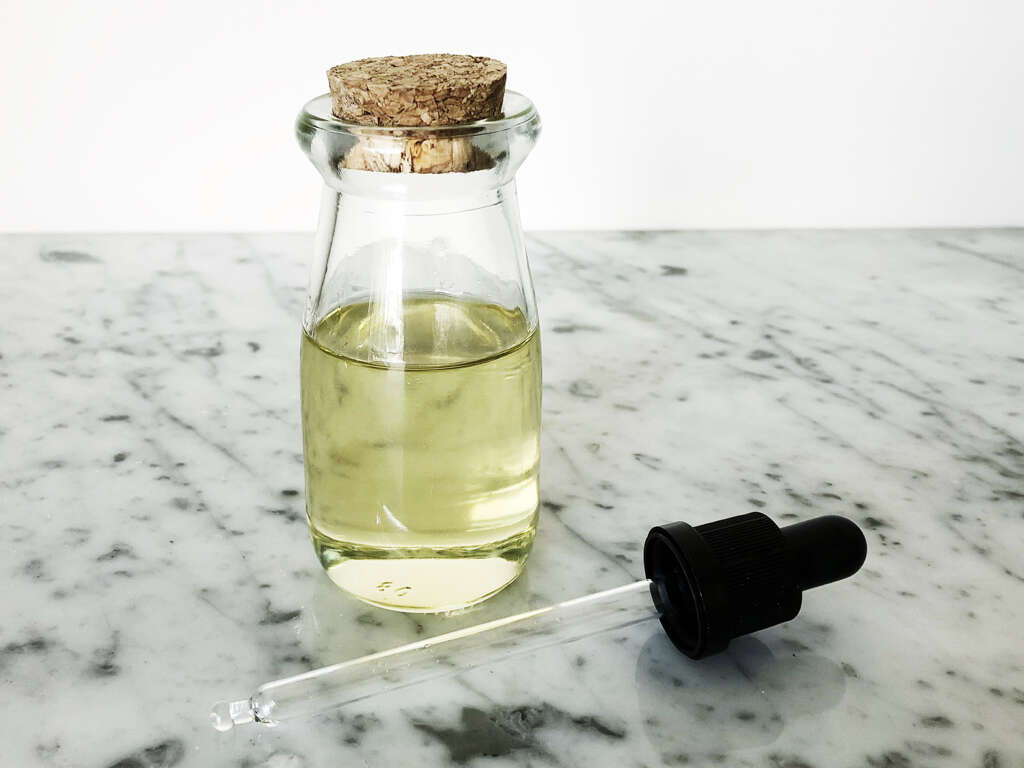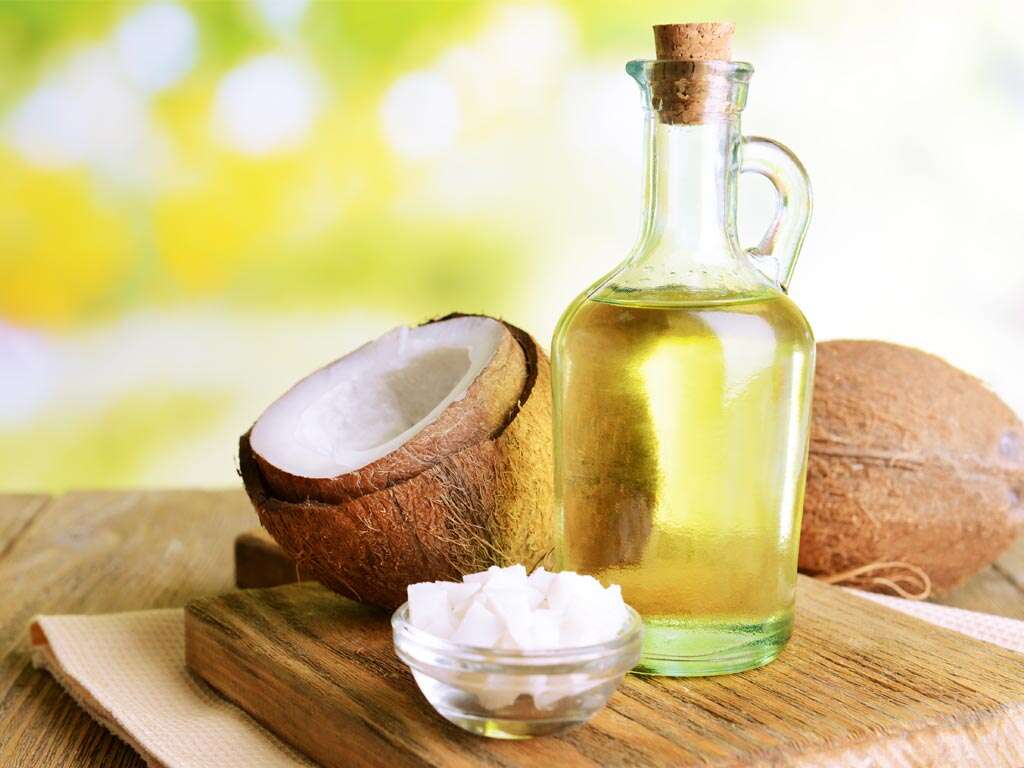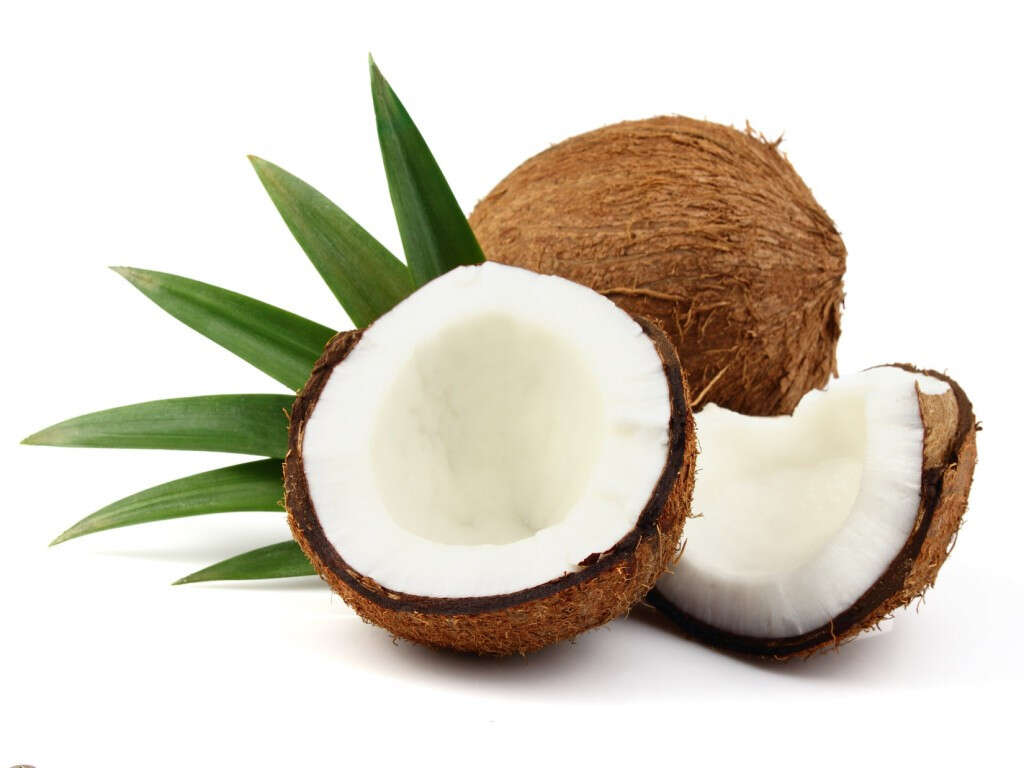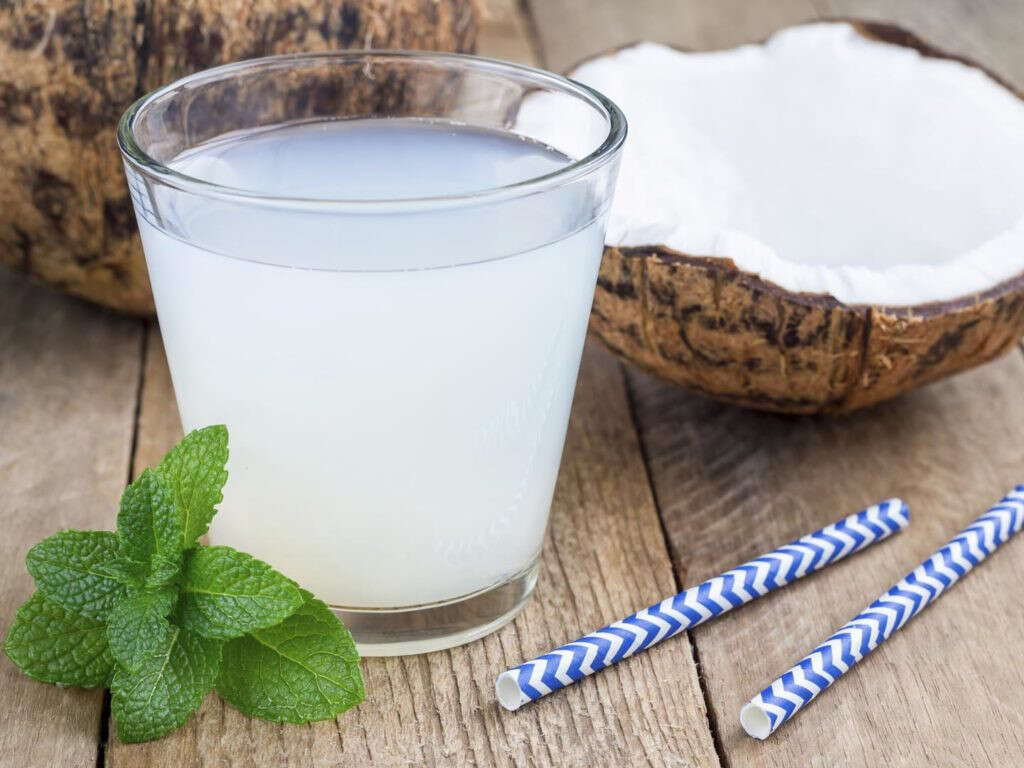10 Benefits of Coconut Oil
Coconut oil is nothing new. Its benefits and popularity have become so mainstream that it seems to be everywhere, and for good reason. Coconut oil is jam-packed with antioxidants, moisturizing fatty acids, and antibacterial antifungal properties. Coconut oil should become a staple in your natural beauty regimen and healthy balanced diet. But before getting into the benefits, let’s discuss what coconut oil is.
It is a mono-unsaturated oil extracted from the white flesh of the coconut. Unlike olive oil, coconut oil has only two types: virgin and refined. Virgin coconut oil is a cold-pressed natural oil whereas refined versions go through chemical processing. There is actually no difference between extra virgin coconut oil and virgin coconut oil. The medium chain triglyceride (MCT), meaning it is made up of three medium-chain fatty acids bonded together, composition of coconut oil responsible for its many characteristics.
Coconut Oil Benefit #1: Supports Immune System
One of the best components of coconut oil is lauric acid, a medium-length long-chain fatty acid. Approximately half of the fatty acids in coconut oil are lauric acid. Lauric acid is especially beneficial for killing bacteria, viruses, and fungi.
Since many diseases today are caused by the overgrowth of bad bacteria, fungi, viruses and parasites in the body, the lauric acid in coconut oil strengthens the immune system against these conditions. When you consume coconut oil, lauric acid reacts with your enzymes to form a monoglyceride called monolaurin. Similar to lauric acid, monolaurin is antibacterial and antifungal.
Coconut Oil Benefit #2: Skin Health
Lipids are necessary components of skin and play a crucial role in the skin’s function as a barrier against the external environment. Studies have found that coconut oil in particular, can improve the moisture and lipid content of the skin by providing fatty acids.
It has also been shown that coconut oil is as effective as some sunscreens in blocking the sun’s ultraviolet (UV) rays. Over time, UV light exposure damages the elastin fibers holding skin cells together. As elastin breaks down, the skin loses its youthful strength, causing the skin to sag and stretch.

Coconut Oil Benefit #3: Improves Memory
One benefit of MCTs is that they can be absorbed by the body easily with minimal digestion. As such, the breakdown of medium-chain fatty acids creates ketone bodies that are readily accessible to fuel brain cells. Ketones supply energy to the brain without the need of insulin to process glucose into energy.
Researchers believe that since the brain is receiving a direct source of energy, the fatty acids in coconut oil improved the memory in older patients. These patients saw an improvement in their ability to recall important information. This occurs because the ketones from coconut oil created an alternate source of energy to help repair brain function.
Coconut Oil Benefit #4: Hair Care
In tropical coastal regions throughout the world, women apply coconut oil to their hair daily. Coconut oil acts as a natural, nourishing conditioner and can help heal damaged hair. The oil is packed with fatty acids that can improve dry hair and dandruff. As the oil nourishes the scalp, it removes sebum build-up from the hair follicles.
While all hair types can use coconut oil, it is most effective for people with fine to medium shiny hair. Use a small amount as a hair mask, hot oil treatment, or with other homemade hair products.

Coconut Oil Benefit #5: Prevents Candida Overgrowth
Candida is a disease caused by an excessive and uncontrolled growth of yeast in the stomach. Lauric acid, monolaurin, and capric acid, another fatty acid found in coconuts, have been shown to kill the very dangerous pathogenic yeast, Candida albicans.
Candida yeast infection can decrease gastric acid, which causes inflammation. On top of fighting the yeast, coconut oil provides relief from the inflammation caused by candida. Fortunately, unlike other treatments for candida that initially cause a flare up of symptoms, the effect of coconut oil treatment is gradual, giving the patient time to adjust to the withdrawal symptoms.
Coconut Oil Benefit #6: Dental Health
Have you ever heard of oil pulling? It is a 3,000-year-old practice, originating in India, of using oil to remove plaque and harmful bacteria away from the gums. It is a method for cleansing the mouth and healing the symptoms of periodontal disease. Coconut oil’s abundance of MCTs contributes to its efficiency in oil pulling.
Another way coconut oil aids in strengthening teeth is through its relationship with calcium. Coconut oil facilitates the absorption of calcium, an important component in bones and teeth. Far too many Americans do not consume enough calcium daily. This can lead to bone loss, low bone density, osteoporosis, and even broken bones. With the help of coconut oil, more of the calcium that is consumed is absorbed by the body.
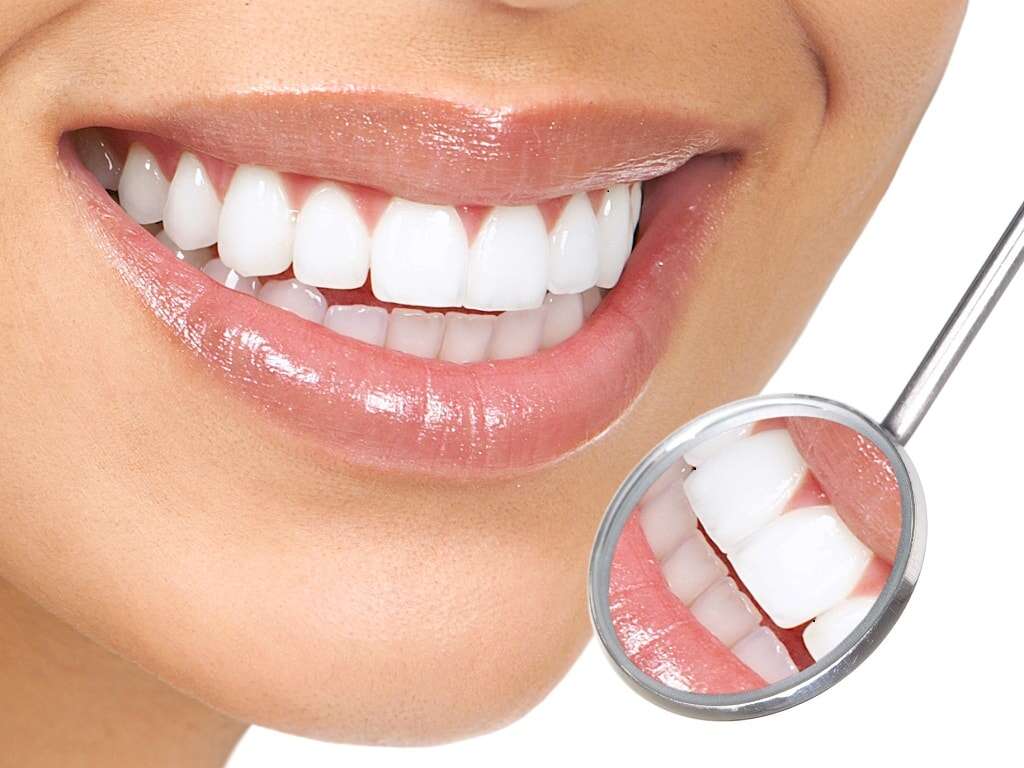
Coconut Oil Benefit #7: Promotes Healing
The antibacterial properties of coconut oil make it an ideal natural topical ointment. For minor cuts, scrapes, and skin rashes, spread coconut oil onto wound immediately to prevent infections. Coconut oil is especially effective on speeding the healing process of bruises.
When applied to infected areas, coconut oil creates a protective layer to seal the infected body part from external bacteria, fungi, dust, and viruses that may worsen the condition. You can even use coconut oil to soothe and prevent peeling of sunburned skin. The vitamins combined with the antibacterial nature of coconut oil can even help prevent cold sore from reproducing.
Coconut Oil Benefit #8: Stress Relief
Applying coconut oil can be very soothing, hence its role in reducing stress. According to research, virgin coconut oil provides longer-lasting relief from stress than medication because of its antioxidant properties. The antioxidants in coconut oil fight free radical damage to restore damaged brain cells while the medium-chain fatty acids remove the feeling of stress.
Applying coconut oil to your head, followed by a gentle scalp and temple massage, helps eliminate mental fatigue. Make sure to look for a pure, virgin coconut oil for the best anti-stress relief. Refined coconut oil is not as effective since many natural components are lost during processing.

Coconut Oil Benefit #9: Hormone Balance
Hormone disruption can cause numerous problems in men and women. The lauric acid in coconut oil can help in maintaining an important balance of hormones. While getting the wrong kinds of fats can wreak havoc on hormones, coconut oil’s fatty acid composition helps support the body’s natural hormone production.
One study conducted suggested that coconut oil may be an excellent fat to consume during menopause because coconut oil and lauric acid may have a positive effect on estrogen levels. Other studies have shown that coconut oil supports the production, processing, and removal of estrogen and progesterone for a perfect balance.
Coconut Oil Benefit #10: Improve Blood Circulation
Blood circulation transfers oxygen, minerals, and nutrients to every part of the body. In addition, maintaining proper circulation promotes organ function and cell growth. Common symptoms of poor blood flow throughout the body are tingling sensations or numbness in certain parts of the body, an irregular heartbeat, pain in the legs, muscle cramps, headaches, edema, dry skin, hair loss, dizziness, fatigue, and cold feet and hands.
Coconut oil is very good for those want to improve blood flow. It contains healthy fats as well as MCTs, which aid in reducing artery inflammation. This in turn can help to improve blood flow throughout the whole body.



